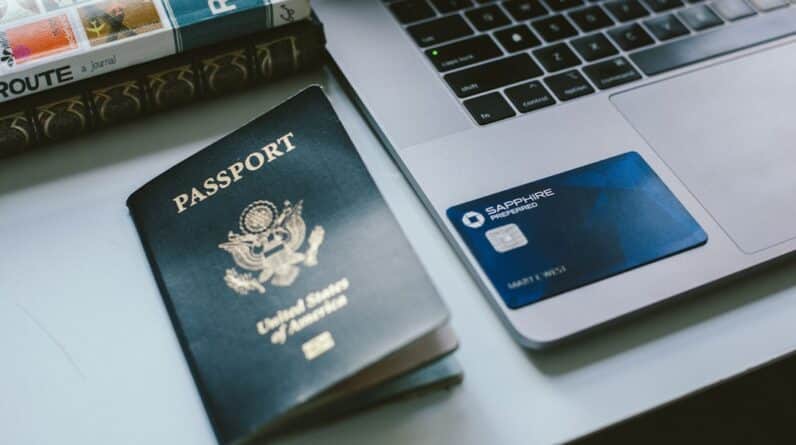As you navigate the ever-evolving landscape of Human Resources (HR), you may find yourself increasingly drawn to the transformative potential of artificial intelligence (AI). This technology, once confined to the realms of science fiction, is now making significant inroads into various sectors, including HR. The integration of AI into HR practices is not merely a trend; it represents a fundamental shift in how organizations manage their most valuable asset: their people.
By leveraging AI, HR professionals can streamline processes, enhance decision-making, and ultimately create a more efficient and engaging workplace. The advent of AI in HR is reshaping traditional practices, allowing for a more data-driven approach to managing human capital. You might be curious about how this technology can be harnessed to improve recruitment, employee development, and performance management.
As you delve deeper into the implications of AI in HR, you will discover that its applications are vast and varied, offering solutions that can address some of the most pressing challenges faced by HR departments today. From automating mundane tasks to providing insights that drive strategic decision-making, AI is poised to redefine the future of work.
Key Takeaways
- AI in Human Resources is revolutionizing the way HR functions by automating repetitive tasks and providing data-driven insights.
- The Benefits of AI in HR include improved efficiency, cost savings, better decision-making, and enhanced candidate and employee experience.
- AI plays a crucial role in Recruitment and Talent Acquisition by automating resume screening, identifying top candidates, and improving the overall hiring process.
- AI in Employee Training and Development helps in personalized learning, skill gap analysis, and providing real-time feedback to employees.
- AI in Performance Management enables continuous feedback, data-driven performance evaluations, and identifying patterns for employee development.
- Ethical considerations of AI in HR include bias in algorithms, data privacy, and the impact on employee well-being.
- Implementing AI in HR comes with challenges such as resistance to change, data security concerns, and the need for upskilling HR professionals.
- The Future of AI in Human Resources is expected to bring more advanced predictive analytics, virtual HR assistants, and further integration with other HR technologies.
The Benefits of AI in HR
One of the most compelling advantages of incorporating AI into HR practices is the significant increase in efficiency it offers. You may have experienced firsthand the time-consuming nature of administrative tasks such as scheduling interviews, processing applications, or managing employee records. With AI-powered tools, these repetitive tasks can be automated, freeing up valuable time for HR professionals to focus on more strategic initiatives.
This shift not only enhances productivity but also allows you to dedicate more energy to fostering a positive workplace culture and supporting employee engagement. Moreover, AI can enhance the quality of decision-making within HR. By analyzing vast amounts of data, AI systems can provide insights that would be nearly impossible for humans to discern on their own.
For instance, predictive analytics can help you identify trends in employee turnover or assess the effectiveness of training programs. This data-driven approach enables you to make informed decisions that align with organizational goals and improve overall performance. As you embrace these technological advancements, you will likely find that your ability to respond to challenges and seize opportunities is greatly enhanced.
The Role of AI in Recruitment and Talent Acquisition

When it comes to recruitment and talent acquisition, AI is revolutionizing the way organizations identify and attract top talent. You may have noticed that traditional hiring processes often involve sifting through countless resumes and conducting numerous interviews, which can be both time-consuming and subjective. AI-driven recruitment tools can streamline this process by using algorithms to analyze resumes and match candidates with job descriptions based on their skills and experiences.
This not only speeds up the hiring process but also helps eliminate unconscious bias, ensuring a more diverse and inclusive workforce. In addition to resume screening, AI can also enhance candidate engagement throughout the recruitment process. Chatbots powered by AI can provide real-time communication with candidates, answering their questions and guiding them through application procedures.
This level of interaction not only improves the candidate experience but also reflects positively on your organization’s brand. As you implement these AI-driven solutions, you will likely find that your ability to attract and retain top talent improves significantly, ultimately contributing to your organization’s success.
AI in Employee Training and Development
Employee training and development are critical components of any successful organization, and AI is playing an increasingly vital role in this area. You may recognize that personalized learning experiences are essential for employee growth and engagement. AI can facilitate this by analyzing individual learning styles and preferences, allowing for tailored training programs that cater to each employee’s unique needs.
This personalized approach not only enhances learning outcomes but also fosters a culture of continuous improvement within your organization. Furthermore, AI can help identify skill gaps within your workforce by analyzing performance data and employee feedback. With this information at your disposal, you can develop targeted training initiatives that address specific areas for improvement.
By investing in employee development through AI-driven solutions, you are not only enhancing individual performance but also contributing to the overall success of your organization. As you embrace these innovative training methods, you will likely see increased employee satisfaction and retention rates.
AI in Performance Management
Performance management is another area where AI is making significant strides. Traditional performance reviews often rely on subjective assessments and infrequent feedback, which can lead to misunderstandings and disengagement among employees. By integrating AI into performance management processes, you can create a more dynamic and continuous feedback loop that fosters open communication between employees and managers.
AI tools can analyze performance data in real-time, providing insights that help you identify high performers as well as those who may need additional support. Moreover, AI can assist in setting measurable performance goals based on historical data and industry benchmarks. This data-driven approach ensures that performance expectations are realistic and aligned with organizational objectives.
As you implement these AI-enhanced performance management strategies, you will likely find that employee motivation increases, leading to improved productivity and overall job satisfaction.
The Ethical Considerations of AI in HR

While the benefits of AI in HR are substantial, it is essential to consider the ethical implications associated with its use. As you integrate AI technologies into your HR practices, you must remain vigilant about issues such as data privacy, bias in algorithms, and transparency in decision-making processes. For instance, if an AI system is trained on biased data, it may inadvertently perpetuate those biases in hiring or promotion decisions.
It is crucial for you to ensure that the algorithms used are fair and equitable, promoting diversity rather than hindering it. Additionally, transparency is vital when implementing AI solutions in HR. Employees should be informed about how their data is being used and how decisions are made based on AI insights.
By fostering an environment of trust and openness, you can mitigate concerns surrounding surveillance or misuse of personal information. As you navigate these ethical considerations, it is essential to strike a balance between leveraging technology for efficiency while maintaining a commitment to fairness and integrity within your organization.
Implementing AI in HR: Challenges and Considerations
Despite the numerous advantages of integrating AI into HR practices, there are challenges that you may encounter during implementation. One significant hurdle is the resistance to change from employees who may feel threatened by automation or uncertain about how it will impact their roles. To address this concern, it is essential to communicate the benefits of AI clearly and involve employees in the transition process.
By providing training and support, you can help alleviate fears and foster a culture of collaboration between humans and machines. Another challenge lies in selecting the right AI tools for your organization’s specific needs. With a plethora of options available on the market, it can be overwhelming to determine which solutions will provide the most value.
Conducting thorough research and engaging stakeholders from various departments can help ensure that the chosen tools align with your organization’s goals and culture. As you navigate these challenges, remember that successful implementation requires careful planning, ongoing evaluation, and a willingness to adapt as technology continues to evolve.
The Future of AI in Human Resources
Looking ahead, the future of AI in Human Resources appears promising as technology continues to advance at an unprecedented pace. You may envision a workplace where AI seamlessly integrates with human expertise to create a more efficient and engaging environment for employees. As organizations increasingly adopt AI-driven solutions, we can expect further innovations that enhance recruitment processes, employee development initiatives, and performance management systems.
Moreover, as AI becomes more sophisticated, its ability to analyze complex data sets will improve significantly. This evolution will enable HR professionals like yourself to make even more informed decisions based on predictive analytics and real-time insights. As you embrace these advancements, it is essential to remain adaptable and open-minded about how technology can enhance your role within HR.
By doing so, you will position yourself—and your organization—for success in an increasingly competitive landscape where talent management is paramount. In conclusion, as you explore the integration of artificial intelligence into Human Resources practices, it becomes clear that this technology holds immense potential for transforming how organizations manage their workforce. From streamlining recruitment processes to enhancing employee development initiatives and performance management systems, the benefits are substantial.
However, it is equally important to navigate the ethical considerations and challenges associated with implementation thoughtfully. By embracing these changes with an open mind and a commitment to fairness, you will be well-equipped to lead your organization into a future where human potential is maximized through the power of technology.
A related article to A New Approach to HR: AI in Human Resources is “AI and Fraud Detection: Securing Financial Transactions.” This article discusses how artificial intelligence is being used to detect and prevent fraud in financial transactions. To learn more about this topic, you can read the article here.
FAQs
What is AI in Human Resources (HR)?
AI in Human Resources (HR) refers to the use of artificial intelligence technology to streamline and improve various HR processes, such as recruitment, employee engagement, performance management, and talent development.
How does AI benefit Human Resources?
AI in HR can benefit organizations by automating repetitive tasks, identifying patterns in employee data, improving the accuracy of candidate matching, and providing insights for better decision-making. It can also enhance the employee experience by personalizing learning and development opportunities.
What are some examples of AI applications in HR?
Some examples of AI applications in HR include chatbots for answering employee queries, AI-powered resume screening and candidate matching, predictive analytics for identifying flight risks among employees, and sentiment analysis for gauging employee engagement.
What are the potential challenges of implementing AI in HR?
Challenges of implementing AI in HR may include concerns about data privacy and security, potential biases in AI algorithms, resistance from employees to AI-driven changes, and the need for upskilling HR professionals to effectively leverage AI technology.
How can organizations prepare for the integration of AI in HR?
Organizations can prepare for the integration of AI in HR by investing in data infrastructure, ensuring compliance with data privacy regulations, providing training for HR professionals on AI technology, and fostering a culture of transparency and trust around the use of AI in HR processes.






